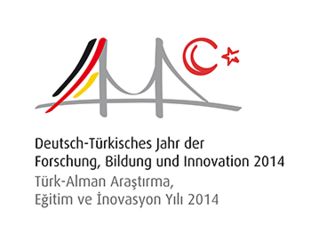Minister Wanka, your Ministry is organizing the German-Turkish Year of Science 2014 in association with the Turkish Ministry of Science. What does this involve?
The German-Turkish Year of Science has set itself an ambitious goal: It aims to expand the bridge between our two countries. There is a great interest in university partnerships and research cooperation on both sides. This has a long tradition. The basis for German-Turkish cooperation in higher education was established by German professors who fled the Nazi regime in the nineteen thirties and settled in Turkey. The Higher Education Compass (Hochschulkompass) of the German Rectors' Conference currently lists 848 cooperation projects involving German and Turkish higher education institutions - with a rising trend. Turkey is an important partner for German and European researchers. Student exchanges have long been a matter of course.
What are your plans exactly?
We intend to kick off the Science Year in Berlin on 23 January 2014. The Turkish Science Minister Nihat Ergün will be a guest at the event. The Science Year will focus on key technologies such as information and communication technologies, nano and biotechnology and the challenges of global change. Another central feature is an ideas competition where we are looking for proposals regarding topics such as: How to initiate new partnerships between German and Turkish research institutions, companies and education providers. Support will be provided for conferences, workshops, trips by delegations and other high-profile events. Science and education organizations will have an opportunity to present their activities to a wide public. Turkish Weeks will be held at various German higher education institutions.
Looking at the many German-Turkish research projects, which do you find the most exciting?
My choice is definitely the Turkish-German University in Istanbul, the TDU, which has just started its work. It really represents something special in the relationship between our two countries and adds a new dimension to our bilateral cooperation. The project is jointly funded by the Federal Ministry of Education and our Turkish partners. More than 130 students have enrolled at the TDU - on bachelor degree courses in Law, Mechatronics and Business Studies and master programmes in European and International Affairs and Intercultural Management. These courses have been developed in cooperation with German higher education institutions. German and Turkish professors share responsibility for teaching. In addition, the students will also spend study periods or internships in Germany. I consider one aspect to be particularly important: The TDU will cooperate closely with Turkish and German industry.
The Turkish economy is growing very rapidly. What role does this play?
A very important role: Well trained specialists - such as TDU graduates - are highly sought after. This means that the achievements of the TDU will directly benefit both our countries. Furthermore, our governments are already co-funding projects involving the cooperation of at least one company and one academic partner each in Germany and Turkey, so-called "2+2 projects". This will lead to important innovations for the benefit of both countries. I would also like to mention another significant example of our cooperation: The "German-Turkish Advanced Research Centre for Information and Communication Technologies" with sites in Berlin and Istanbul, which shows just how application-related our joint research is.
There have already been a number of international Science Years. They are part of the Federal Government's strategy to internationalize science and research. Why is this Science Year different?
The German-Turkish Year of Science is not only interesting for the scientific community. After all: There are almost three million people of Turkish origin living in Germany, more than half of whom have German nationality. Most of them feel at home in Germany and enrich our country. Some of them have rendered great services to science and industry. Of course, there are also certain problems. But we have long since come to appreciate the talents of people who are at home in two cultures and speak several languages. I am convinced that the potential of young people with migrant backgrounds is an important boon for Germany.
And vice versa? What about Germans in Turkey?
Our countries are closely interlinked. Over 5000 German companies are active in Turkey. This shows just how dynamic Turkey is - how strong its economy is. And one should not forget that millions of Germans spend their holidays in Turkey every year. Both countries profit from the exchange and German-Turkish relations are becoming more and more important as Turkey becomes increasingly involved in the process of European integration. Germany and Turkey have considerable potential for cooperation. The German-Turkish Year of Science 2014 will give this potential a further boost.








